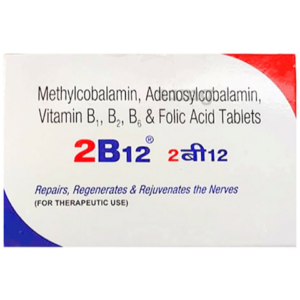NEUROTROPIC VITAMINS
NEUROTROPIC VITAMINS: Neurotropic vitamins are a group of B vitamins, including vitamin B1 (thiamine), vitamin B6 (pyridoxine), and vitamin B12 (cyanocobalamin), that are essential for the normal functioning and health of the nervous system. They are used to treat or prevent various neurological disorders and deficiencies.
The mechanism of action of neurotropic vitamins involves their conversion into coenzymes that play a crucial role in various metabolic pathways in the body, particularly those involved in the synthesis and maintenance of nerve cells and neurotransmitters. Thiamine, for example, is necessary for the production of adenosine triphosphate (ATP), the primary energy source for cells, while pyridoxine is involved in the synthesis of neurotransmitters such as serotonin, dopamine, and gamma-aminobutyric acid (GABA). Vitamin B12 is essential for the formation of myelin, the protective covering around nerve fibers.
The recommended doses of neurotropic vitamins can vary depending on the specific condition being treated. However, common dosages include:
– Thiamine (vitamin B1): Oral dosage for adults is commonly 50-100 mg daily, usually divided into two or three doses.
– Pyridoxine (vitamin B6): Oral dosage for adults is typically 50-200 mg daily, divided into two or three doses.
– Cyanocobalamin (vitamin B12): Oral dosage for adults is generally 1000-2000 mcg daily, although higher doses may be required for certain conditions.
Neurotropic vitamins are generally safe to use, particularly at recommended doses. However, some individuals may experience mild side effects, including nausea, vomiting, diarrhea, and abdominal pain. In rare cases, allergic reactions may occur. It is important to consult with a healthcare professional before starting any new medication, including neurotropic vitamins, to ensure safety and appropriate usage.




